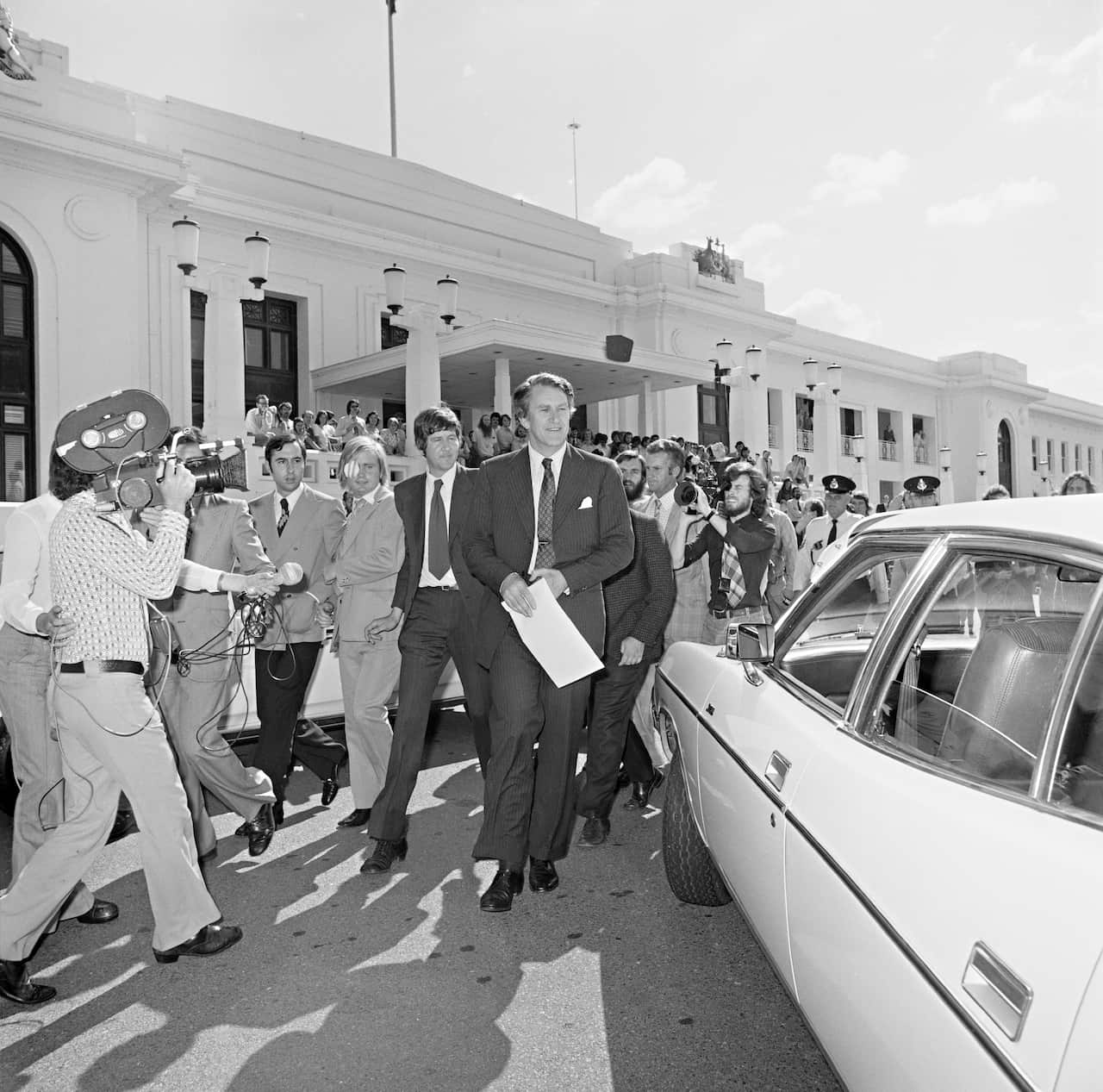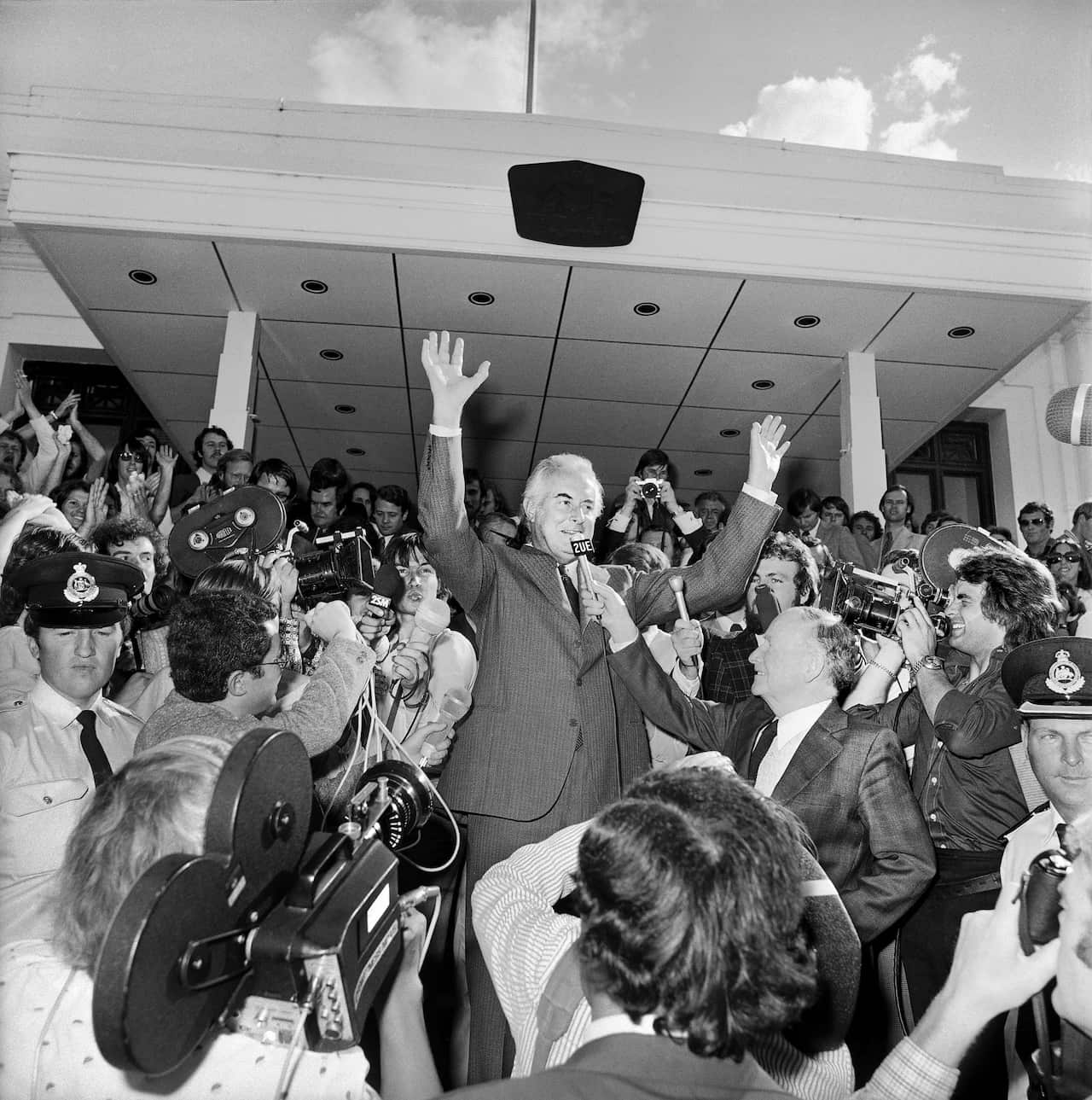Prime Minister Anthony Albanese has said the dismissal of Gough Whitlam was a "calculated plot, hatched by conservative forces", firing up a decades-long debate.
Speaking at Old Parliament House on Monday evening, Albanese said no "political and legal arguments" can prove "the injustice" of bringing down a democratically elected government.
He said power belongs to the "people of Australia".
"Make no mistake: November 11th 1975 was not a 'constitutional crisis ' — it was a partisan political ambush," he said.
"There was no precedent — and no legitimate pretext."
The politically explosive moment is still widely debated, with Albanese announcing a Whitlam statue to immortalise his 149-word speech on the eve of its 50th anniversary.
"The dismissal was a calculated plot, hatched by conservative forces which sacrificed conventions and institutions in the pursuit of power," he said.
Above all, what Albanese feels is being lost is an acknowledgement of the "legitimacy of a Labor government", which had a majority in the house.
What was the 'the dismissal'?
Three years into his term, then prime minister Gough Whitlam was dismissed by then governor-general Sir John Kerr.
Whitlam had paid Kerr a visit in hopes of resolving a deadlock in the Senate, where the Opposition was blocking budget bills which put the government at risk of running out of funds to pay essential services, public servants and pensions.
However, Kerr invoked rare reserve powers to sack Whitlam, appointing Opposition leader Malcolm Fraser as caretaker prime minister.
Why was Gough Whitlam dismissed?
The decision followed a controversial tenure for Whitlam, following Labor's election win in December 1972.
Whitlam's agenda, celebrated by Labor faithful after what Albanese described as 23 years in "political wilderness", included reforms such as establishing the precursor to Medicare, abolishing university fees and conscription, advocating for the rights of Indigenous Australians, and abolishing the White Australia Policy.

However, tough economic conditions, soaring inflation and several political scandals put the Labor government under the microscope, eroding public confidence.
Why is the moment debated?
Hours after the dismissal, chants of "We want Gough" all but drowned out the governor-general's secretary, Sir David Smith's, proclamation on the steps of the then Parliament House, announcing Whitlam had been sacked and parliament dissolved, triggering an election.
The secretary completed the decree by uttering the phrase "God save the Queen".
Straight away, Whitlam seized the microphone and criticised the governor-general and the Opposition leader in a fiery speech now etched into Australia's political conscience.
"Well may we say God save the Queen," he started, "because nothing will save the governor-general". The crowd roared.
A moment immortalised with a Whitlam statue, announced by Albanese on Monday.

For some, the sacking of a democratically elected leader has been viewed as outrageous or worse, a betrayal.
However, with the Senate blocked, for others, it was an indication of Australia's constitution working.
The legacy was further complicated following the release of palace letters in 2020, which revealed Kerr had been corresponding with the Queen's private secretary about the dismissal.
It demonstrates that the moment, which took Whitlam by surprise, had been months in the planning.
Current Governor-General Sam Mostyn downplayed the Crown's involvement over the weekend, stating the reserve powers should be used "wisely and appropriately".
"If a government starts to behave irresponsibly, the role of the governor-general will be to have those conversations with the prime minister, with the ministers of the crown, early enough to say 'there's trouble ahead'," she told The Australian.
"The holder of this office is there to protect the Australian public against the potential of irresponsible government."
— With additional reporting by the Australian Associated Press
For the latest from SBS News, download our app and subscribe to our newsletter.

